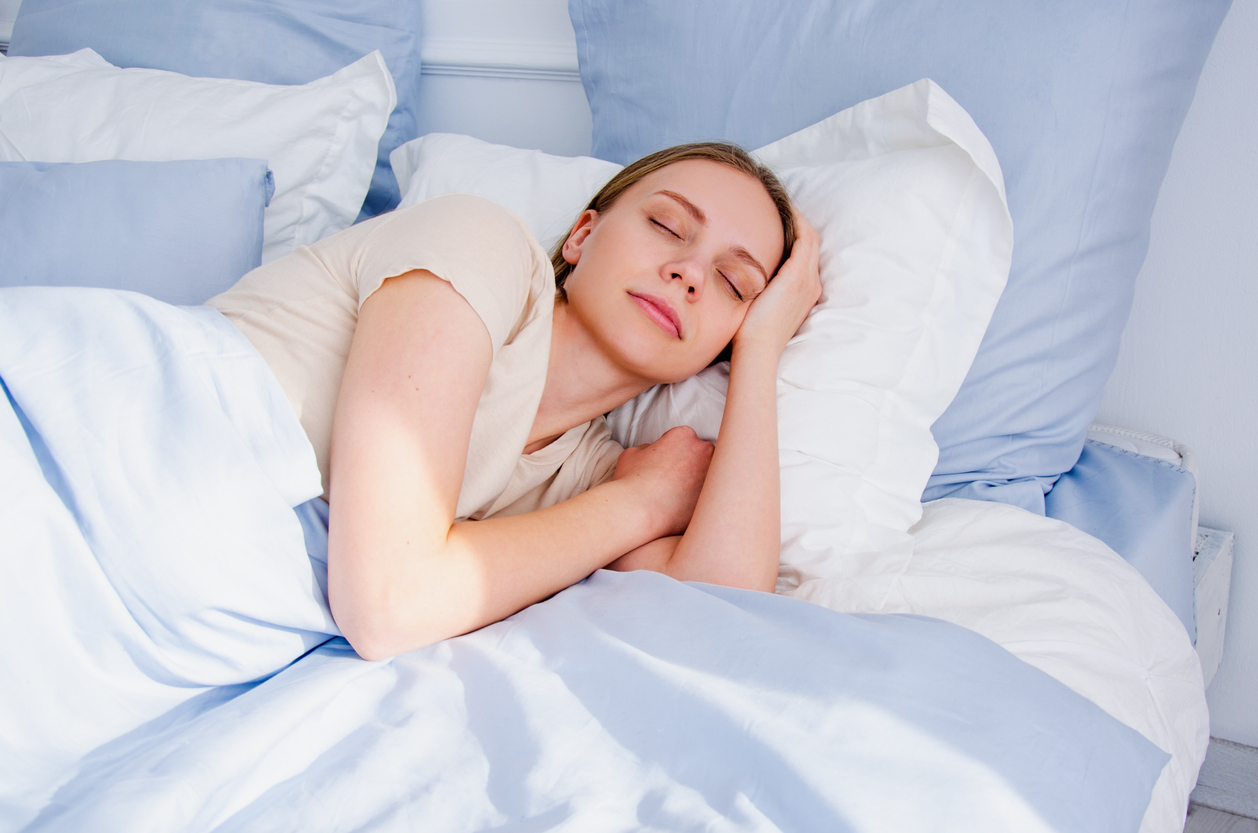

7 Tips for Better Sleep
A good night’s sleep is essential to our emotional, mental, and physical well-being. When we get poor sleep we can have problems concentrating, experience mood swings, feel irritable, and have higher levels of stress. Lack of quality sleep is also linked to higher risks of health conditions such as diabetes, heart disease, and high blood pressure. It’s important we prioritize getting better sleep so we can be at our best.
If you’re struggling to get enough quality sleep, try these 7 tips to help you get better sleep.
Maintain a Regular Sleep Schedule
It can be hard to do but maintaining a regular sleep schedule goes a long way in helping you sleep better. Sleep is regulated by our circadian rhythms which use environmental signals, like light, to tell us when it’s daytime and when it’s time for bed. When we go to bed at different times our circadian rhythm gets disrupted and we have a harder time falling asleep.
To maintain a regular sleep schedule:
- Go to bed at the same time each night
- Wake up at the same time every morning, even on the weekends
- Expose yourself to natural light as soon as you wake up to make you more alert and help regulate your circadian rhythm
- Aim for 7 to 9 hours of sleep a night
Create a Calming Bedtime Routine
A calming bedtime routine is a great way to help your mind and body relax so you get better sleep. If you’re having trouble quieting your mind before bed, try light stretching, a bedtime yoga routine, reading your favorite book, or listening to calming music to help you fall asleep more easily. Enjoying a hot bath or shower before bedtime can help you sleep better and the drop in your body temperature, when you get out, causes feelings of sleepiness.
Quality Mattress
A quality mattress is important for getting quality sleep. Studies show people fall asleep faster and get better sleep when sleeping on memory foam mattresses. Memory foam mattresses contour to your body to provide support and pressure relief, and isolate and absorb motions. SaniSnooze™ mattresses have multiple layers of gel-infused CertiPUR-US memory foam so you can enjoy a night filled with better sleep.
See the full SaniSnooze™ collection here
Avoid Lengthy Naps
It seems like a good idea to nap when we’re feeling tired, but napping during the day can have negative effects on your sleep. Short power naps can be beneficial, but napping too long or too late in the day disrupts our internal clock which can throw off your sleep schedule, making it more difficult to sleep at night. If you do need a nap, nap for about 20 minutes or less to feel refreshed and not groggy like a 30 minute or more nap can leave you. You should also try to nap in the early afternoon, and no later than 3pm, to not disrupt your sleep schedule.
Skip the Scrolling
It can be easy to slip into the habit of scrolling social media on our phones, laptops, and other devices but if you want better sleep, skip the scroll. The blue light that comes from our electronic devices mimics daylight which interferes with our circadian rhythm and body’s natural ability to produce melatonin. This can make it difficult to fall asleep and disrupt our sleep patterns. For better sleep, try to disconnect at least 30 minutes before you go to bed.
Lower the Thermostat
It can be difficult falling asleep and staying asleep in a room that is too hot or too cold. Our body temperatures are tied to our circadian rhythm so they fluctuate during the day and while we sleep. If a room is too hot or too cold, our bodies struggle to adjust, causing more disturbed sleep. Research suggests the optimal temperature range to sleep in is 66 to 70 degrees fahrenheit. If you find this range too hot or too cold, slightly adjust the range to meet your ideal sleeping temperature.
Avoids Liquids Close to Bedtime
Consuming large amounts of liquid before bed can lead to nighttime bathroom trips, especially if you experience nocturia or bedwetting. Drinking large amounts of liquids before bed can cause similar symptoms as nocturia, with some people being affected more. Nocturia is excessive urination during the night and it can disrupt our sleep cycle causing us low daytime energy, reduced productivity, and more. Limiting fluid intake and avoiding alcohol, caffeine, and sugary drinks, 1 to 2 hours before bed, can help reduce bathroom wakeups so you get better sleep.
If bedwetting is something you are struggling with and causing you sleep disruptions, consider a waterproof mattress cover. The SaniSnooze™ waterproof mattress covers make cleaning night time accidents quick and easy so you can get back to sleep faster for a good night’s snooze.
See the full SaniSnooze™ collection here
Final Thoughts
Sleep is essential. Our bodies need consistent, quality sleep to properly function and keep us healthy. When we sacrifice sleep, we are only hurting ourselves and preventing us from operating at our best. If you have difficulty falling asleep or staying asleep, talk to your primary care physician to make sure you aren’t experiencing a more serious problem, such as narcolepsy, insomnia, or sleep apnea.
**The information on this site is not intended or implied to be a substitute for professional medical advice. If you are having a severe and sudden change in physical or mental health, please call 911, contact a local emergency facility or consult with your doctor. Always seek the advice of your physician or other qualified healthcare provider, and never disregard the advice given because of information you have received from our website. SaniSnooze is a division of DiaMedical USA.**
Our mission at SaniSnooze™ is to get you back to sleep faster. SaniSnooze™ will keep your mattress core clean and dry all night long.



